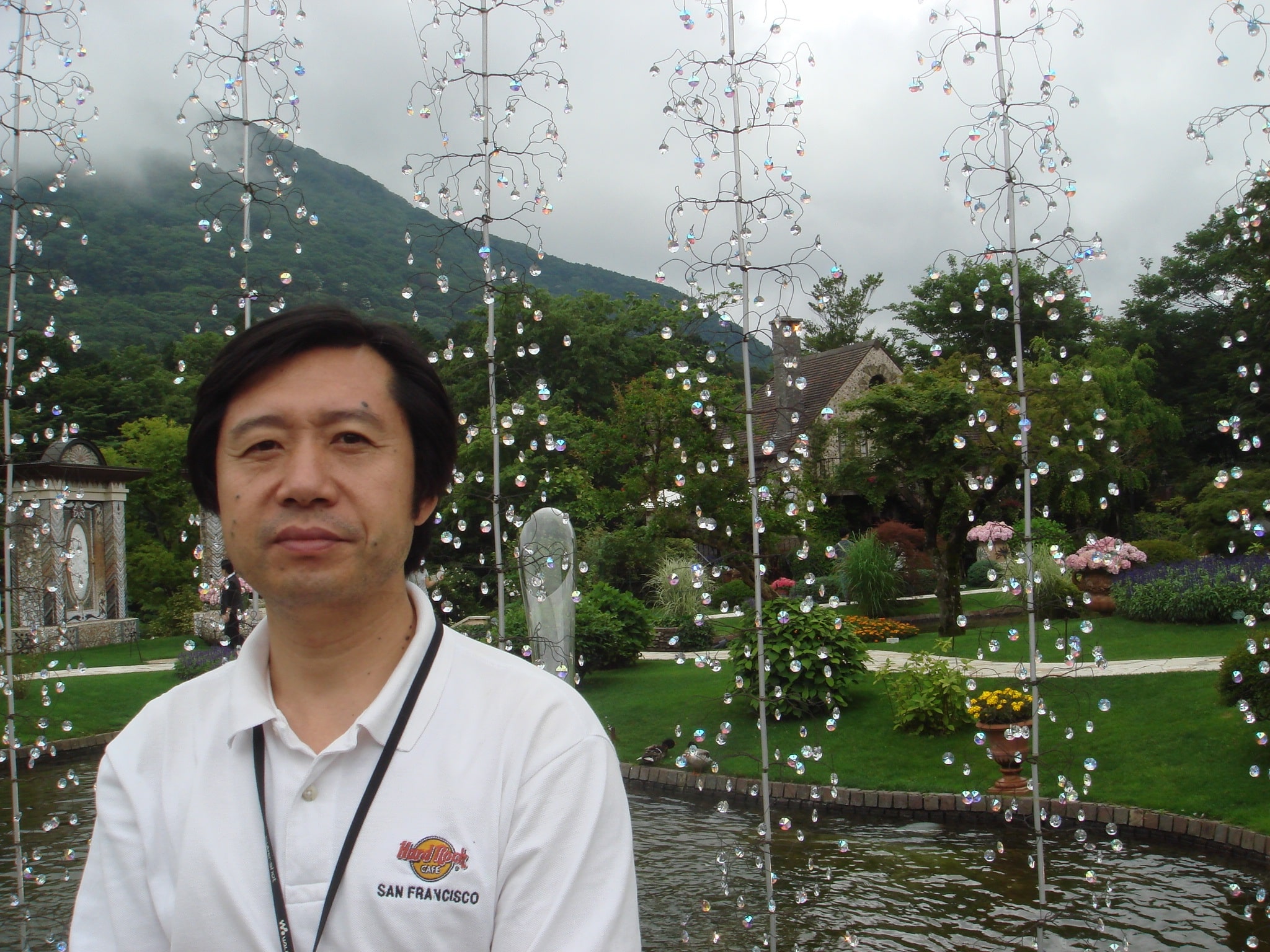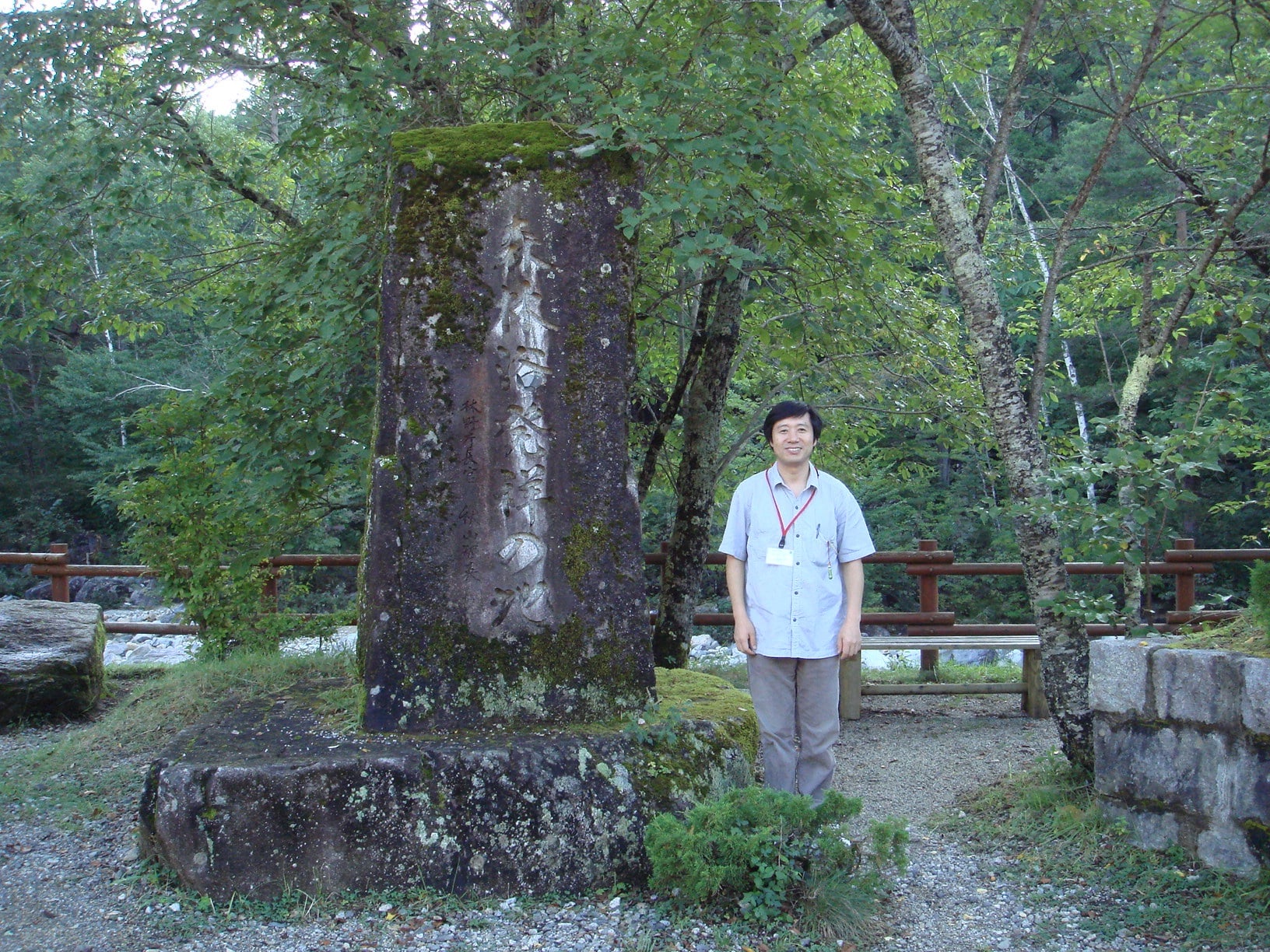To feel familiar with their surroundings, humans have always tried to establish a relationship with nature. The connection with nature is so intense and yet so subtle- it helps you to experience calmness and contentment. It also creates a positive impact on the human mind in the best possible way. But, unfortunately, today we have failed to establish a connection, due to a great shift from nature to technology.
LifeBeyondNumbers got in touch with Dr. Qing Li, the author of the book Forest Bathing, to know why he wants to make forest bathing a public movement and help him in his quest to make people understand about the positivity of nature by spreading awareness about the practice.

The-52-year-old Physician is the president of the Japanese Society of Forest Medicine, the vice-president of the International Society of Nature and Forest Medicine, and one of the directors of Forest Therapy Society in Japan.
“I grew up in a small village in Datong, Shanxi Province of China. The Poplar forests were green in spring and summer, and the leaves turned yellow in autumn.”
Qing Li came to Japan in 1988 to study Japanese advanced medicine. During that time, he spent a week camping with his friends in Yakushima, a small, round island with the mysterious, glowing, green forest.
“I went during Golden Week – a holiday in Japan which includes Greenery Day, a day on which we commune with nature and are thankful for all its bounty and beauty. During that trip, I realized how essential forest bathing is for human health. Later, this added a whole direction of my life and a new approach to my future research.”
“My major is environmental medicine and I got my Ph.D. degree from Kagoshima University in 1992 and then moved to Tokyo. I have studied the effects of environmental chemicals, stress, and lifestyle on immune function since 1988 at Kagoshima University and Nippon Medical School. I am interested in the effect of all environmental factors on human health. I am also interested in the effect of forest environments on human health.”
Because of his background, when the Ministry of Agriculture, Forestry, and Fisheries of Japan organized the project team in 2004, he was invited as a main member of the project team.

“I want to know why we feel so much better when we are in forests. What is this secret power of trees that makes us so much healthier and happier? Why is it that we feel less stressed and have more energy just by walking in the forest? I study forest medicine to find out all the ways in which walking in the forest can improve our well-being. I had the following hypothesis before the study of forest bathing:
It is well known that the immune system including natural killer (NK) cells plays an important role in defense against bacteria, viruses, and tumors. It is also well known that stress inhibits immune function. Empirically, forest bathing/shinrin-yoku may reduce stress. Thus, I speculate that forest bathing/shinrin-yoku may have a beneficial effect on immune function by reducing stress.”
Since 2004, he has conducted serial studies to investigate the effect of forest environments (shinrin-yoku) on human health and published many scientific articles in English on the topic of Forest Medicine (forest bathing/shinrin-yoku).
The terms ‘forest bathing’ and ‘Shinrin-yoku’ in English were first used and defined in Qing Li’s research in 2007 and later he published many scientific papers on them.
In 2007, the Japanese Society of Forest Medicine was established. The term Forest Medicine in English was first proposed in 2007 in Japan.
In his research, Qing Li has found that forest bathing has many benefits to human health-
- Reduced blood pressure
- Reduced stress
- Improved mood
- Increased ability to focus, even in children with ADHD
- Accelerated recovery from surgery or illness
- Increased energy level
- Improved sleep
- Boosted immune system functioning, with an increase in the count of the body’s Natural Killer (NK) cells.
It is projected that by 2050, 75% of the world’s population will live in cities. It is proven that city-people are more likely to suffer from heart attacks, strokes, and cancer. Urban city life is also associated with higher anxiety and depression rates.
Shinrin-yoku can reduce the risk of many people developing these illnesses, and it is free! It is also wonderful to be able to reconnect with the natural world, to enjoy the forest atmosphere by your five senses. He hopes his book will inspire more people to notice the natural world around them and be aware of the health benefits of practicing shinrin-yoku.
Connecting with trees has a healing effect on the mind as well as the body. It increases the intuitive power of humans. People can enjoy forest environments(forest bathing/Shinrin-yoku) through all five senses:
- The sense of sight: forest landscape- green color, yellow color, and red color and other colors
- The sense of smell: special good smell, the fragrance from trees
- The sense of hearing: forest sounds, birdsong
- The sense of touch: Touching trees can put your whole body in the forest atmosphere
- The sense of taste: Eating foods and fruits from forests, taste the fresh air in forests
It is a total effect of all five senses- the quiet atmosphere, beautiful scenery, mild climate, special good smell, and fresh, clean air in forests contribute to the effects. However, the aromas from the trees (sense of smell) have the main effect.
On asking about deforestation, Qing Li says, “We should stop the urbanization and plant more trees. Since 2003, we have conducted many scientific experiments to investigate the effects of forest environments on human health and have published lots of papers in scientific journals and books. We found many beneficial effects of forests on human health.”
Imagine a new medical science that could let you know how to be more active, more relaxed and healthier with reduced stress and reduced risk of lifestyle-related disease and cancer by visiting forests. This new medical science is called forest medicine.
Forest medicine encompasses the effects of forest environments on human health and is a new interdisciplinary science, belonging to the categories of alternative medicine, environmental medicine, and preventive medicine. This book presents up-to-date findings in forest medicine to show the beneficial effects of forest environments on human health.
The Experiments that bear proof of the therapeutic impact on humans due to forest bathing –

Qing Li believes that Shinrin-yoku makes one more active, relaxed, happier and healthier. This further helps one to reduce stress and lifestyle-related diseases and cancers. “If you want to be more active, more relax, happier, and healthier, you need to come close to nature.”
Qing Li’s book Shinrin-yoku has been translated into 20 languages now. He wants to verify the preventive effects of forest bathing on lifestyle-related diseases among INFOM(International Society of Nature and Forest Medicine) member countries and expand the philosophy of Forest Medicine over the world.

